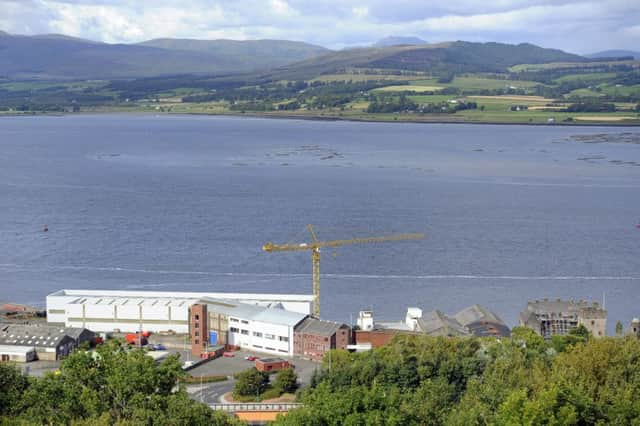Ferguson named preferred bidder for CalMac contract


Once finalised, the new £97m contract will create new jobs at the shipyard and secure employment for the existing workforce of around 150 people, providing a boost for shipbuilding on the Clyde.
Ms Sturgeon said: “This is an excellent result for Ferguson Marine Engineering Limited and I am delighted to name them as preferred tenderer for the contract to build two new ferries, the largest commercial vessels to be built on the Clyde since 2001.
Advertisement
Hide AdAdvertisement
Hide Ad“This contract will see the 150-strong workforce retained and more staff taken on at the shipyard, underlining our commitment to creating the vital jobs needed to boost local economies and help stimulate growth across Scotland.
“The Scottish Government is committed to supporting ferry users around Scotland by providing safe and reliable services, and this is the latest step to ensuring we have a fleet that continues to deliver for the communities that depend on it.”
Caledonian Maritime Assets Ltd (Cmal) own the CalMac fleet on behalf of the Scottish Government.
Erik Østergaard, Chair of CMAL, said:
“I am delighted that we are able to name FMEL as the preferred tenderer for this contract and be in a position to enter discussions with them on the final terms and conditions. Subject to agreement on all points, we hope to be in a position to finalise the award of the contract later in September.
“We have undertaken a complex process of technical evaluation to ensure the new vessels will meet CalMac Ferries Ltd’s rigorous requirements on capacity, speed, draft and dual fuel capabilities, including the ability to operate to a wide number of harbours and routes over their lifetime. We are confident that the specification from FMEL can deliver on all of these conditions.
“We have worked with the team at Ferguson’s on the build of previous vessels for our fleet and most recently on our three smaller hybrid ferries and we look forward to continuing this successful relationship.”
The new ferries will be ‘dual-fuel’ vessels so they can operate on liquefied natural gas (LNG) and marine diesel. LNG is significantly cleaner and has been adopted by ferry operators in Northern Europe in response to tighter emissions regulations.
The first ferry is expected to be delivered in early 2018, with the second vessel following a few months later.